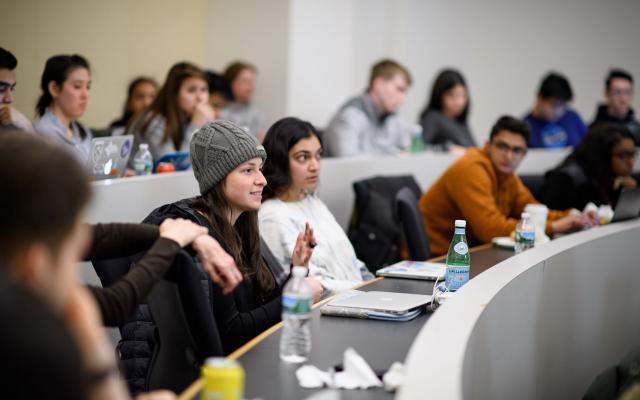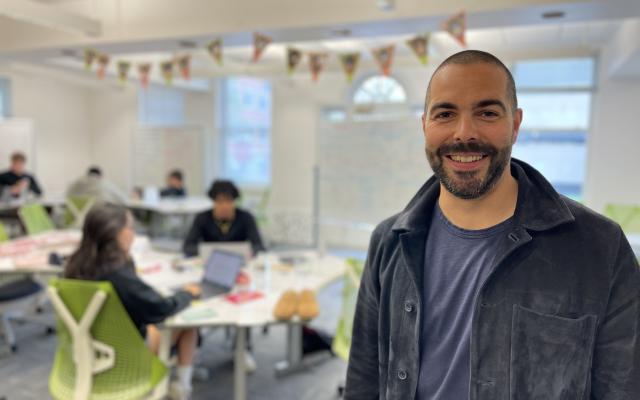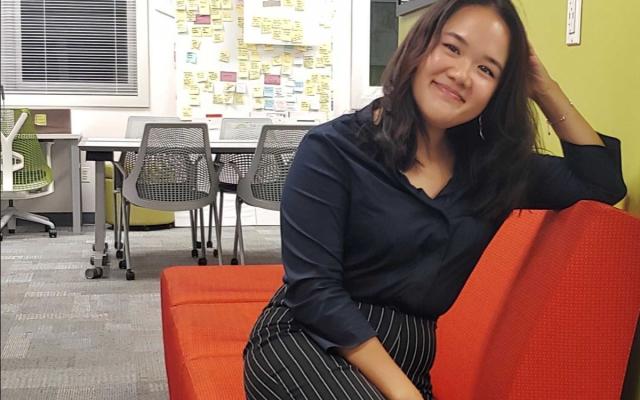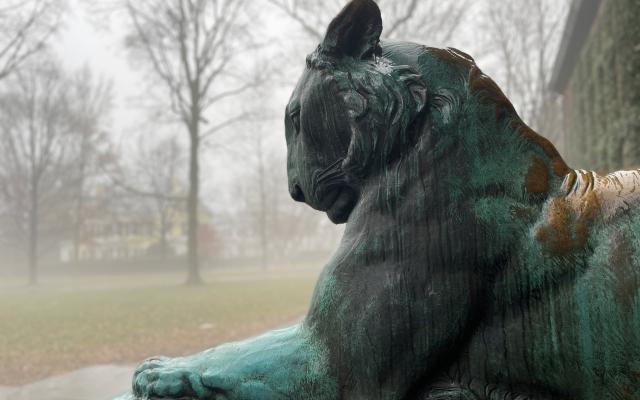In Community Project Studios, students earn academic credit for participation in multidisciplinary teams that work on projects over one or more years. The course mission is to provide a hands-on, experiential environment, in which students (often alongside community partners) bring real-world projects through to fruition. Although the methodology and projects vary for each studio, all teams in the program are supported through skill-development workshops, close-knit advising, and cultures of peer-to-peer collaboration. Students may participate for up to six semesters.
Courses EGR 250, 350, 450 will not be open for enrollment in spring 2024 semester. Students, who were enrolled previously in EGR 250, 350, 450, should continue accordingly in EGR 251, 351, 451.
Studio 1: Making to Learn and Serve
Formerly "Time Team"
The Community Projects Studio Making to Learn and Serve group is engaged in a number of projects throughout the academic year. Students work in groups of 2-4 on projects of their own design. A brief description of some of the past projects can be found below.
You can also see a summary of original projects by students since the fall of 2019. (Note: EPICS was the former name of the course.)
Joseph Henry Scientific Group
The group makes electromagnetism devices for community education purposes based on the physics principals Professor Joseph Henry discovered when he worked in Princeton University.
LEGO Group
Based on Lego NXT and RCX modules, the group is making AI-controlled robots and testing out basic operations like color recognition and line tracking.
3D Scanner Group
The group uses a handheld 3D scanner to extract dimensional information from regular objects and reconstruct them in the software environment, which is very helpful in the applications of replicating and recovering valuable ancient artifacts.
PDPA Computer Group
The group operates and maintains a computer with punched tapes as the IO interface, to understand the mechanical and logical design behind it.
Hit & Miss Engine
Restoration of a Hit & Miss engine and its application in the ice cream maker.
Clock Group
Restoration of an old factory clock from Trenton and installation of new features like a face and the driving mechanism.
Piano Group
Restoration of the self-playing mechanism of a player piano
Creo Group
Operate an industry-grade CAD software to design diverse objects and construct them in a 3D printer
Ford Engine Group
Design and demonstrate a prototype of the typical Ford engine in the collaboration with MAE machine shop.
Studio 2: Tiger Challenge
Tiger Challenge is a multi-year, interdisciplinary program at Princeton University with the mission to equip participants and partners with the joint-capacity to design more equitable and joyful societies. In small teams, students and advisers work with nonprofit and government partners to develop lasting innovations to address issues across education, health and well being, equity and social justice, environmental sustainability, and civic life. The program is grounded in design thinking, a body of techniques that unlocks empathy, creativity, collaboration and open-mindedness. Impact through innovation can take many paths, and so can this program: some teams participate in a 10-week, full-time summer immersion experience; most teams participate in the Community Project Studio course (in which Princeton students receive academic credit); some participants may even choose to do independent work as they conduct impact evaluations of their designs. Every Tiger Challenge team is highly supported throughout, receiving the training, mentorship, space, and resources necessary to do this crucial work well.
Email Victoria Dorman for more information on course enrollment.
Studio 3: eLab
eLab is a program offering resources, mentorship, a specialized entrepreneurship curriculum, and a collaborative co-working space to help teams develop their startup ventures. Students, working in teams, will learn how to introduce value creating products and services into real world settings. Weekly instruction, support, and mentorship will be provided to each team as required to achieve agreed upon milestones. These milestones will be associated with properly estimating and defining the potential of a given innovation to create value in the real world relative to minimizing risks of failure as well as possible adverse consequences. Students will:
- Understand how to fully scope the potential of an innovation.
- Learn to work effectively in teams.
- Develop skills to accurately assess costs, resource needs, and identify and assess risks associated with their potential innovation.
- Demonstrate their mastery of their idea by answering Eleven Basic Strategic Questions (listed in the eLab CPS Class Primer).
- Demonstrate their mastery of determining the innovative potential of any idea by describing their process for assessing their ideas going forward.
To be accepted, teams (this includes ALL team members) must submit an application after reading the eLab CPS Class Primer. They will be asked to explain the idea they wish to pursue, the strength and weaknesses of the team, their commitment to the class relative to their other classes, and their plans for the year. Commitment, followed by strengths and weaknesses of the team will be the most important criteria for admittance to the class.
Contact Stephanie Landers for more information on eLab CPS (Studio 3 only) course enrollment.
How to Enroll
Students may participate for up to six semesters.
Students of all majors (AB and BSE) and class years are encouraged to seek enrollment.
EGR 250 is the first course which students need to enroll into. EGR 251 required in the next semester in order to get credit and receive a P/D/F grade. After completion of 251 students may enroll into 350 and 351, and after completion of 351 into 450 and 451. In order to receive full credit for the course, students must enroll in the 2-course sequence, e.g., EGR 250 and EGR 251. Please note that EGR 251 is P/D/F only, but EGR 351 and 451 are fully graded. Students may participate for up to six semesters (should follow the sequence 250, 251, 350, 351, 450, 451). For questions about enrollment, please email Victoria Dorman.
Students need to enroll into a studio for the project they want to pursue. See the Studio sections above to learn more about current projects.
Important: for Studio 3: eLab, all interested students must submit an application (and be accepted) before enrollment can be confirmed. The application is per student, not per team.



